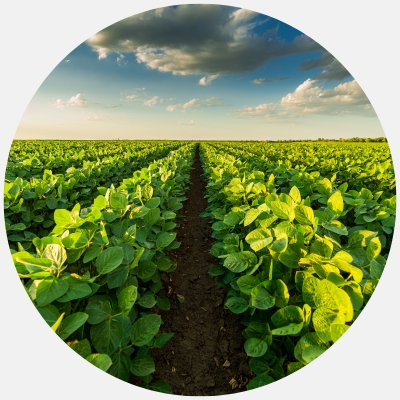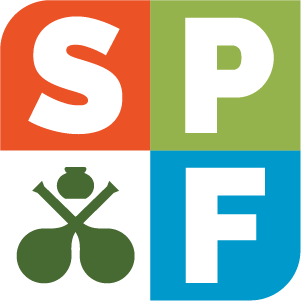2024 Sustainable Protein Forum
Co-located with the AOCS Annual Meeting & Expo
How do we feed 8 billion people?
Developing a sustainable, accessible food system is one of the most pressing challenges facing humanity. Finding solutions requires collaboration and changes to every aspect of the food system — from production and processing to distribution and consumption.
The Sustainable Protein Forum brings together a passionate community of scientists, technologists, engineers, and nutritionists who believe there is a way to sustainably feed humanity.
Join us for an inspired program that highlights the latest developments in research, policy, and industry impacting sustainable proteins and explore multidisciplinary solutions that revolutionize complex, integrated systems for food production.
Online registration is now closed. You can still register onsite in Expo Hall 220d of the Palais des congrès de Montréal. The registration desk opens Sunday, April 28 at 1 p.m. EDT.



What can you expect at the Forum?
The Sustainable Protein Forum highlights the latest research and development on sustainable proteins and brings together leaders from all components of the food system — from production and processing to distribution and consumption. Attendees are able to:
- Join a global community at the forefront of alternative protein research and development.
- Learn from leaders in industry, government, and academia who are propelling groundbreaking innovation in the product design, cellular technologies, and economics of sustainable protein.
- Unlock the solutions to challenges in sustainable protein research and development from industry thought leaders.
Want to preview some of the content you can expect at the 2024 Sustainable Protein Forum? Click here for exclusive access to two presentations from the 2022 Forum.
Program Sessions
Session topics and descriptions as of September 2023. Sessions are developed and organized by members of the Sustainable Protein Forum Program Committee.
Functional Designing with Molecules for Protein-based Products
Session Chairs: Janitha Wanasundara, Lamia L’Hocine, and Poulson Joseph
Food proteins exert diverse biological/nutritional and techno-functional properties to the final product that reach our plate and the palate. How protein molecules manifest these properties in various environments and conditions of complex food matrices are not well understood and not easy to predict. Alternative proteins have to function and perform like the animal protein-based foods we consume. Presentations in this session will expand knowledge about protein molecules and their aggregates in structure-function relationships, including interactions with other food molecules in developing protein-based products that provide essential nutrients and an enjoyable food experience.
Opportunities and Challenges in Developing High Quality Plant Protein Ingredients and Nutritional Food Products
Session Chairs: Anthony Clark, James House, Elaine Krul, Chris Marinangeli, and Lars Reimann
There is global awareness of the need to increase sustainable food availability — not only as a way to preserve environmental resources but to meet the growing demand for nutritious foods for human consumption. As consumers begin to accept more plant-based foods, new products are produced as a result — bringing unique opportunities and challenges to light. The opportunities arise from the recognition of unique health-promoting properties of plant foods, like fiber and micronutrients. However, plant protein is generally recognized as lower quality than animal protein, and may contain compounds that inhibit nutrient absorption. This session aims to highlight how nutrition practitioners and the food industry are addressing these issues to bring more sustainable foods to the world.
A Food Secure Future with Sustainable Protein Innovation
Session Chairs: Milena Corredig, Chris Marinangeli, and Jane Whittinghill
Innovation in sustainable protein for food is moving at rapid speed. One of the challenges is ensuring that in the future, sustainable protein foods will be a preferred choice, not just the right choice. This means finding robust supplies, affordable crops, and a focus on maintaining value in rural communities. Crop resilience, less refined ingredients, and a more sustainable production process need to balance with developing nutritious, appealing, and affordable food options. This session will discuss how to achieve such a balance.
Identifying Demand for Environmental Sustainability in the Food System
Session Chairs: Chris Marinangeli
Enhanced environmental sustainability is often highlighted as an opportunity when adopting the use of novel and/or alternative protein sources in foods. As these ingredients and foods enter the commercialization stages of innovation, an understanding for the demand for environmental sustainability as a value proposition is required. In the context of food innovation, a metric approach is often used to quantify environmental sustainability across various indicators to highlight its value. In contrast, this session will examine the demand, perspectives, and value proposition of sustainability at two extremes of food system: the producer and the consumer. Challenges, opportunities, and tradeoffs will be discussed, including the interaction between environmental sustainability and consumer adoption.
Recent Developments in Novel Technologies for Sustainable Proteins
Session Chairs: Phil Kerr, Mehmet Tulbek, Kerry Campbell, and Anthony Clark
Opportunities and challenges exist for the development and successful commercialization of sustainable food proteins by using a wide range of novel processing technologies. Included among these are novel drying, separation, high pressure / extrusion technologies, and even combinations of these approaches. The session will bring together technical experts from across these fields to highlight the impact these technologies may have to enhance product quality, process efficiency, and thus sustainability for producing the next generation of proteins and enabling their high performance in end use applications.
Traditional/Biomass Fermentation & Upcycling (Parts I & II)
Session Chairs: Phil Kerr, Mehmet Tulbek, Kerry Campbell, and Anthony Clark
This session will focus on “Traditional Fermentation” refocused on generating novel, high-protein biomass, upcycling crushing, and other grain co-product streams. We know that up to 50% of food produced in the world is not eaten. While many see food waste as a crisis, it is also a critical opportunity for upcycling. A wave of new technologies (and some very old) driven by a start-up ecosystem will repurpose food by-products into new food ingredients that help reduce food waste. This session will cover novel approaches and technologies used to upcycle brewing, crushing, and other agricultural waste-streams.
Precision Fermentation: Realizing the Promise of Biotechnology in Proteins and Food
Session Chairs: Anthony Clark, Mehmet Tulbek, Phil Kerr, and Kerry Campbell
Biotechnology and fermentation go hand in hand, whether it's the traditional methods used for making cheese, beer, kimchi, or the biomass fermentation of Quorn, algae, and mycelium. In the past, industrial fermentation was limited to using enzymes like rennet and meat glue. However, new advancements in genetic editing and mass-parallel sequencing technologies, along with growth of AI, have made it possible to create custom organisms that can produce food proteins, fatty acids, and other nutrients to meet the demands of the growing nutritionally-focused food industry. During this session, we will explore the latest developments in precision fermentation that are enabling this new wave.
Novel Protein Product: Addressing Regulatory and Safety Challenges
Session Chairs: Elaine Krul, Lars Reimann, Janitha Wanasundara, and Lamia L'Hocine
Regulatory challenges in product development with non-conventional protein sources need to be addressed throughout the production, processing, and storage phases to ensure that a safe, nutritious product reaches the consumer’s plate. In order to comply with regulations, applicable analytic assessments that validate the nutritional, techno-functional, and microbial/chemical safety value of proteins and protein-ingredients are needed. Presentations in this session will discuss current status of regulations related to nutritional value and safety of unconventional protein products as food ingredients and challenges that protein ingredient processors and food manufacturers face.
